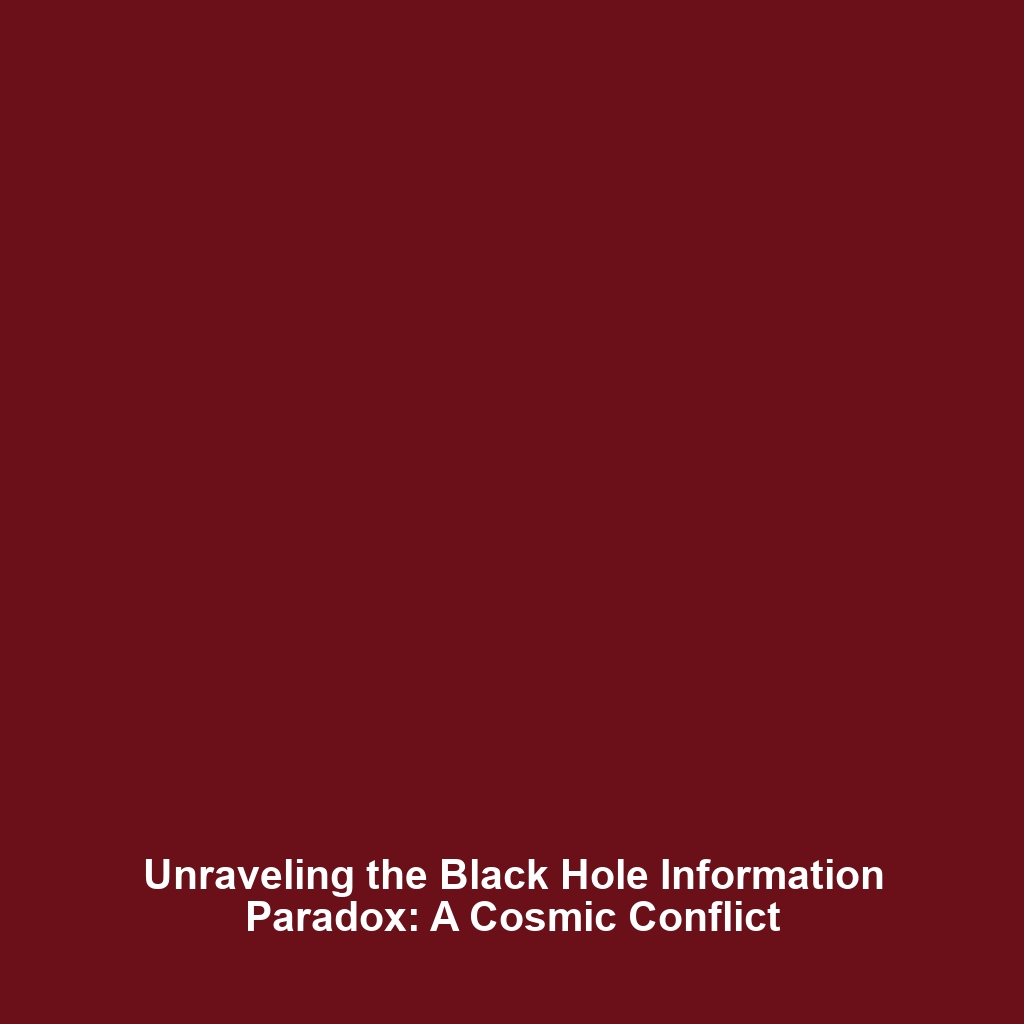Can Information Escape a Black Hole?
Introduction
One of the most intriguing questions in astrophysics is can information escape a black hole? This question touches on the fundamental principles of black hole physics and has profound implications for our understanding of the universe. As black holes are known for their immense gravitational pull that traps everything within their event horizon, the idea that information—integral to the fabric of reality—could be lost challenges deep-rooted concepts in physics. Exploring whether information can escape a black hole not only enhances our understanding of these enigmatic structures but also prompts a reevaluation of the laws governing the cosmos.
Key Concepts
Understanding Black Holes
Black holes are regions in space where the gravitational forces are so strong that nothing—not even light—can escape from them. The concept of information escaping a black hole is linked to famous theories proposed by physicists such as Stephen Hawking, who suggested that black holes might emit radiation, allowing for the possibility that some information could escape.
The Information Paradox
The information paradox is at the heart of this debate. It presents a challenge to the notion of determinism in physics, which posits that everything is predictable if all initial conditions are known. If information is lost once something falls into a black hole, it contradicts this notion, leading to significant theoretical consequences.
Applications and Real-World Uses
The exploration of whether information can escape a black hole is not purely theoretical; it has real-world applications in understanding fundamental physics. Some significant areas include:
- Quantum Computing: Insights into black holes could inform advances in quantum information theory.
- Astrophysical Models: Models incorporating the potential for information escape can improve our understanding of cosmic phenomena.
- Black Hole Thermodynamics: The principles gleaned from studying black holes can have implications for energy systems and entropy in physics.
Current Challenges
Studying whether information can escape a black hole presents several challenges:
- Technological Limits: Current observational technologies restrict our ability to study black holes in detail.
- Theoretical Complexity: The interplay between quantum mechanics and general relativity remains a significant area of research.
- Interpretational Issues: Different interpretations exist within the scientific community regarding the implications of black hole information.
Future Research and Innovations
The future of research surrounding the question of whether information can escape a black hole is vibrant and filled with potential breakthroughs. Areas of focus include:
- Quantum Gravity: Efforts to unify quantum mechanics with general relativity could shed light on black hole behavior.
- Event Horizon Telescope Projects: Improved imaging techniques may one day allow scientists to see phenomena occurring near black holes.
- New Theoretical Models: Innovations in theoretical physics may provide answers to longstanding questions about information and black holes.
Conclusion
The question of can information escape a black hole is fundamental to our understanding of the universe and challenges existing beliefs in physics. While current research points towards the potential for information preservation through various theoretical frameworks, much remains to be explored. Moving forward, continued research in astrophysics, quantum mechanics, and related fields will be essential in unraveling these cosmic mysteries. To learn more about black holes and related topics, consider exploring additional articles on our site.


